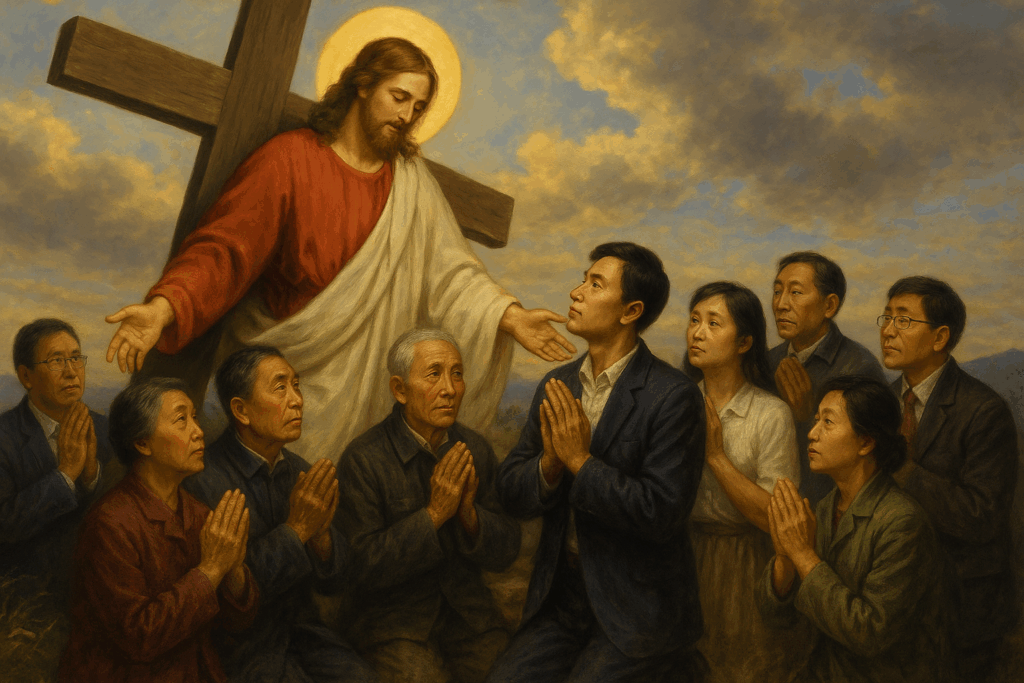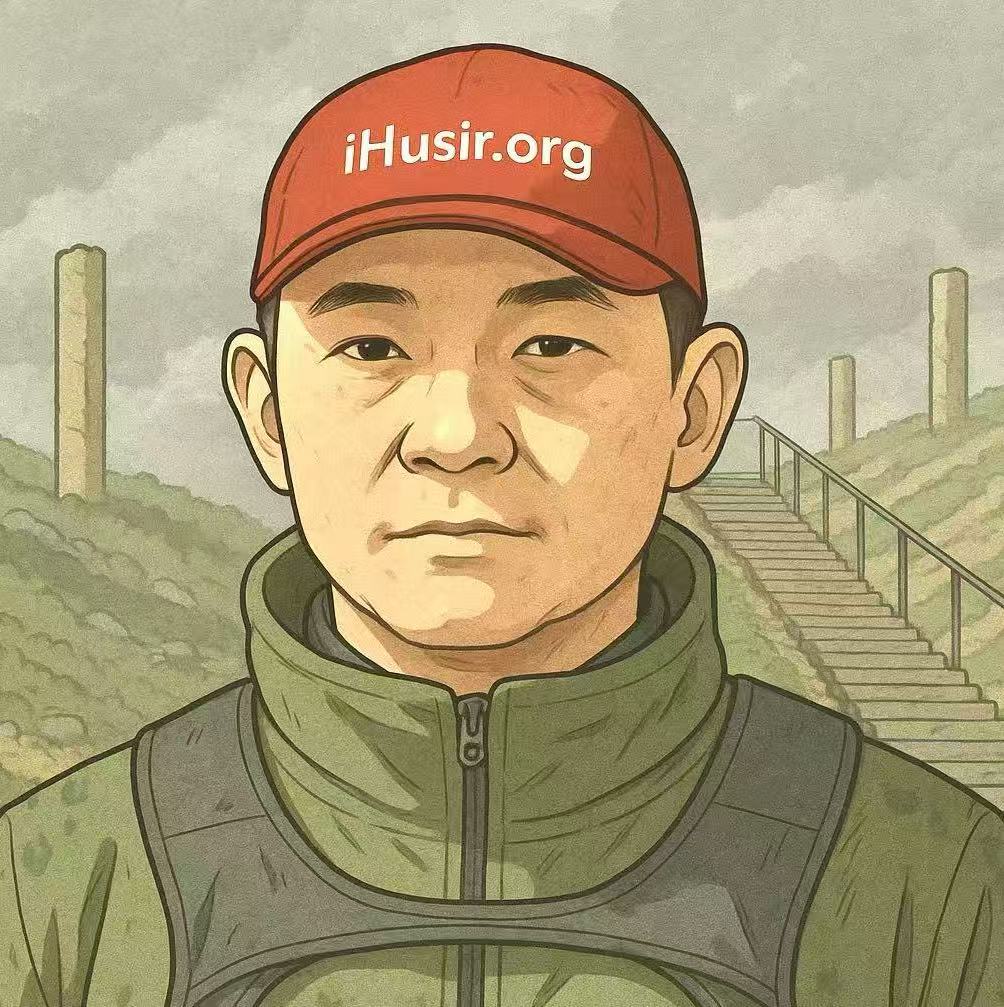——写给中国基督徒的一封属灵警醒书
文/MingSir
“我谁也不信,要信就信我自己。”这句在中国社会流行多年的口头禅,似乎道出了当代中国人自信、理性、独立的态度。然而,透过属灵的眼光看去,这句自我宣告却像是一声沉重的叹息:这是一个拒绝真理、压抑良知、远离神的民族在黑暗中独行的表白。
i 与此同时,近年来在基督徒群体中流传着另一个声音:“福音的接力棒将由中国教会接过,把福音传回耶路撒冷。”这是何等令人振奋的宣言——它仿佛为一个历经苦难、仍在属灵荒漠中挣扎的国度点燃了光,作为基督徒的你是不是听了后也激动不已呢?可我们是否问过自己:在这个“谁也不信”的国度,真的准备好接过这根神圣的接力棒了吗?
一、隐藏在“无神论”背后的属灵现实:明知有神,却不愿顺服
《罗马书》1章18节起已经揭示了人类心灵深处的真实状态:
“神的忿怒从天上显明在一切不虔不义的人身上,就是那些行不义、阻挡真理的人。……神的事情,人所能知道的,原显明在人心里,因为神已经给他们显明。”
中国人并不是真正“从未听说过神”,而是拒绝承认真理、逃避悔改、躲避顺服的光。当人以“信自己”为信仰、以权力与欲望为神,他们所否定的,不是神的存在,而是神的主权;同时否定的还有神赐给每个人那份与生俱来的、为自由奋斗、为现实辨析真伪、为命运引航的那份真实感动。
这种隐藏在以儒释道为文化背景深处的属灵悖逆,以及对“福、禄、寿、喜”世世代代的追求和膜拜才是真正阻挡福音进入中国社会心灵的“铜墙铁壁”。这些价值观被掩盖在“孝”、“仁义”、“中庸”这些儒家道德的外衣下,又被道教的术数、佛教的轮回观滋养着,塑造出一个既迷信功利、又自以为道德高尚的属灵结构。
这种文化不是福音的“空白地”,而是一个充满了混合型偶像崇拜与属灵骄傲的战场。人们追求的是“祖宗保佑,升官发财”,信的是“命好运旺”,敬的是“天、地、祖先、财神”,讲的是“入世圆滑”“为善得报”。在这样的属灵结构中:
- 罪被忽视,变成“性本善”的模糊词汇;
- 悔改被拒绝,因为“做人无愧于心”已足够;
- 恩典被误用,等同于“老天赏饭吃”的好运气;
- 十字架变得尴尬,因为那不是成功,而是失败、羞辱与牺牲。
而这些,正是福音最核心的信息所要彻底拆毁的——但在中国文化中,它却被建成了一堵高墙,一堵金光闪闪、却属灵冰冷的“铜墙铁壁”。
二、“福音接力棒”的荣耀预言:是使命,还是属灵幻梦?
“福音回归耶路撒冷”的异象在华人教会中影响深远。它激励无数信徒投身宣教、翻译圣经、建立家庭教会,曾点燃希望,也催生行动。但我们需要清醒地意识到:属灵使命不能只靠热情与口号来承担,更要靠真实的悔改、圣灵的更新与忠诚的见证来成全。
当“神特别拣选中国”成为一种文化情绪的安慰剂时,悔改的力量便被中和了,十字架的真实也被掩盖了。许多信徒口中高举“福音中国梦”,心中却充满的是对民族崛起的期盼、对文化优越感的迷恋,甚至幻想“中华文明”取代西方基督教文明。
我们必须小心:基督不是来实现你的民族梦想,而是来钉死我们每个人心中骄傲、悖逆与偶像崇拜的十字架。

三、我们真正需要的是:从中国开始的悔改,不是荣耀
主耶稣没有让我们靠喊口号完成福音使命。祂只问我们:“你是否愿意悔改?你是否愿意舍己跟从我?”而且悔改必须从中国文化根深蒂固的无神论、人本主义、家国崇拜中抽身而出。它必须碾压“我信我自己”的骄傲,走向“主啊,我愿降服你”的谦卑。
我们要悔改的不仅是个人品格的软弱,更是整个民族灵魂,就是那个摆在几乎每个人面前的那堵“铜墙铁壁”,对真理的长期压抑。没有从这一点开始,中国基督徒就无法承担拯救这片土地的希望,更谈不上成为世界的光。
四、真实的悔改,也必须在现实中站出来——勇敢对抗罪恶,而不是与世同流
今天的中国,不仅是一个“属灵真空”的社会,更是一个“现实暴力”频发却“全民沉默”的结构性灾难现场。你可曾看到:
- 疫情期间,数以千万计的人被强制封控,连夜焊门、抢菜、断药、驱赶、静默管理;
- 老人因延误治疗而死、孕妇在门口流产、孩子高烧却无药可吃;
- 普通人绝望跳楼、烧炭、抗议、被消声……
这一切我们都看见了,却有多少教会为这些人发声?有多少基督徒愿意承担公共见证?有多少牧者选择了沉默或随波逐流?
在疫情最严酷的日子里,尽管全社会沉默压抑,仍有一些勇敢者站出来说真话。李文亮医生在最早预警疫情后被训诫,最终殉职,引发全民哀悼;张展、方斌、陈秋实等普通基督徒、公民记者深入疫区,为真相发声却被判刑、失联、逼迫;还有白纸运动中的无数青年,在封控与死亡的夹缝中,举起白纸抗议谎言。这些人虽未必都信主,却以行动见证了良知与勇气,也提醒教会:若连世界尚有人愿为真理受苦,基督徒怎能沉默不语?
我们不是不懂公义,而是害怕承担代价。我们不是没看见苦难,而是选择像众人一样做了“缩头乌龟”。这其中也包括我自己,为了一己党员身份,为了家人‘平安无事’,为了自己的‘软肋’不被连累,同样选择了默默地每天去排队做核算检测而不敢采取任何措施呼吁。
这样的信仰,是耶稣所教导的吗?是先知所宣讲的吗?是使徒们为之殉道的吗?真实的悔改,不只是心灵的安慰,而是愿意在黑暗中站出来、说真话、承担见证的重价。

五、勇敢说出真理,是中国基督徒成为“接棒者”的前提
神并不需要中国教会去完成什么“历史使命”,祂要的是一颗破碎痛悔、愿意为义受苦的心。祂不会因你是“中国人”就特别选用你,祂用的是“愿意为祂站出来”的人。
你不需要是领导,不需要是牧者,只要你在真理面前愿意说“我不服从谎言”;只要你在封控的夜晚仍为邻居祷告、送去食物;只要你在沉默的社会仍敢分享福音、揭示爱——那时,你就已经不是一个“谁也不信”的中国人,而是一个“已经接棒”的主的门徒。
结语:不要问“中国是否配得接棒”,要问“我是否愿悔改”
今天,中国基督徒面临两个极端的诱惑:
一个是冷漠世俗、麻木不仁;
一个是浮夸高举、属灵自恋。
而耶稣呼召我们走的是第三条路:悔改、舍己、跟随祂。
愿你我不再高喊“福音要从我出发”,而是低声祷告:“主啊,让我悔改,从我开始。”
“In a Nation Where No One Believes, How Can We Take Up the Baton of the Gospel?”
— A Spiritual Wake-Up Call to Chinese Christians
By MingSir
“I believe in no one—if I believe, I believe in myself.” This saying, which has circulated in Chinese society for many years, seems to capture the confidence, rationality, and independence of modern Chinese people. Yet through spiritual eyes, this declaration rings like a heavy sigh: it is the confession of a people who reject truth, suppress conscience, and walk far from God in darkness.
At the same time, another voice has spread among Chinese Christian circles: “The gospel baton will be passed to the Chinese church, which will return it to Jerusalem.” What an exhilarating vision—igniting hope in a nation that has endured suffering and still struggles in a spiritual desert. As Christians, doesn’t that stir your heart? But have we asked ourselves: in this nation where no one believes, are we truly prepared to take up this sacred baton?
I. The Spiritual Reality Behind “Atheism”: Knowing God Yet Refusing to Obey
Romans 1:18–19 already unveils the condition of the human heart:
“For the wrath of God is revealed from heaven against all ungodliness and unrighteousness of men who suppress the truth in unrighteousness. … For what can be known about God is plain to them, because God has shown it to them.”
The Chinese are not truly “unaware of God,” but rather refuse to acknowledge His truth, flee from repentance, and shrink from His light. When people substitute “believing in themselves” for faith, and make power and desire their gods, they deny not God’s existence but His sovereign lordship—and they reject the innate stirrings He has placed within each soul to strive for freedom, discern reality, and steer its own course.
Hidden deep within the Confucian-Taoist-Buddhist cultural complex lies a spiritual rebellion—and the worship of “fortune, rank, longevity, and joy” passed down for generations—that forms the true “bronze wall and iron barrier” blocking the gospel from reaching Chinese hearts. These values hide behind the Confucian veneer of “filial piety, benevolence, and moderation,” nourished by Taoist rites and Buddhist cycles, forging a spirituality both superstitious in its utilitarianism and self-righteous in its morality.
This cultural reality is no blank slate for the gospel, but a battleground of hybrid idols and spiritual pride:
- Sin is downplayed into the vague notion that “human nature is fundamentally good.”
- Repentance is rejected, for “as long as one has a clear conscience, one has done enough.”
- Grace is reduced to “heaven granting good luck.”
- The cross becomes embarrassing, for it symbolizes failure, shame, and sacrifice rather than success.
These are precisely the core truths the gospel seeks to demolish—yet in Chinese culture they have been built into a towering wall, gilded yet spiritually frigid.
II. The Glory Vision of the “Gospel Baton”: A Sacred Mission or a Spiritual Delusion?
The “Back to Jerusalem” vision has profoundly shaped many Chinese churches, inspiring believers to engage in missions, translate Scripture, and establish house churches. But we must soberly recognize that spiritual calling cannot rest on zeal and slogans alone; it requires genuine repentance, the renewing work of the Spirit, and steadfast, faithful witness.
When the notion of “God specially choosing China” becomes a source of cultural comfort, the power of repentance is neutralized and the reality of the cross is obscured. Many Christians speak proudly of a “Chinese gospel dream,” yet secretly yearn for national resurgence, cultural superiority, or a vision of Chinese civilization supplanting Western Christendom.
We must beware: Christ did not come to fulfill our national ambitions, but to crucify the pride, rebellion, and idolatries within each human heart.

III. What We Truly Need: Repentance Rooted in China, Not Mere Prestige
Jesus never promised that chanting slogans would fulfill the gospel’s purposes. He simply asked, “Will you repent? Will you take up your cross and follow Me?” True repentance must break free from China’s entrenched atheism, humanism, and patriotic idolatry—crushing the pride of “I believe in myself” and moving into the humility of “Lord, I yield to You.”
We must repent not only of personal failings, but of our nation’s long-standing spiritual suppression—the “bronze wall and iron barrier” confronting almost every Chinese soul. Without beginning there, Chinese Christians cannot bear the hope of rescuing this land, let alone become the light of the world.
IV. Genuine Repentance Requires Standing Up in Reality—Courageously Confronting Evil, Not Blending In
Today’s China is not only a “spiritual vacuum,” but also a place where real injustices abound while the masses remain silent. Have you witnessed:
- Millions compelled into lockdowns, welded doors overnight, scrambling for food and medicine, forced dispersals, and silent enforcement?
- The elderly dying for lack of timely care, expectant mothers miscarrying at sealed doorways, children with high fevers but no access to drugs?
- Desperate people leaping from buildings, self-immolating, protesting, only to be silenced?
We have seen it all—yet how many churches spoke up? How many Christians risked public witness? How many pastors chose to remain silent or go along with the tide?
Amid the pandemic’s harshest days, some courageous souls still spoke truth. Dr. Li Wenliang, warned early, reprimanded, and ultimately died of the virus, becoming a symbol of conscience and free speech. Zhang Zhan, Fang Bin, Chen Qiushi and other ordinary Christians and citizen journalists went into the epicenter to document reality—only to be jailed, vanished, or punished. And during the “Blank Paper Protests,” countless youths held up white sheets in silent dissent against lies, many arrested or disappeared.
Though they were not all believers, they bore witness to conscience and courage—and reminded the church: If the world still has people willing to suffer for truth, how can Christians remain silent?
We do not misunderstand justice; we fear its cost. We have seen suffering, yet choose to be “turtles”—shrinking back to safety. I, too, confess: to protect my party membership, my family’s peace, and my own security, I queued daily for tests in fearful silence.
Is such faith what Jesus taught? What the prophets proclaimed? What the apostles died for? True repentance is not mere soul-comfort, but the willingness to stand in darkness, speak truth, and pay the costly price of witness.

V. Courageously Proclaiming Truth: The Prerequisite for Chinese Christians to Become “Baton-Bearers”
God does not require the Chinese church to fulfill some grand “historical mission”; He desires hearts broken by repentance, willing to suffer for righteousness. He does not choose us because we are Chinese, but because we will stand for Him.
You need not be a leader or a pastor. If you will say “I will not obey lies,” if you will pray for neighbors and deliver food in lockdown, if you will share the gospel and embody love in a silent society—then you will no longer be “one who believes in no one,” but a disciple who has truly taken up the baton.
Conclusion: Don’t Ask “Is China Worthy of the Baton?”—Ask, “Am I Willing to Repent?”
Today, Chinese Christians face two extreme temptations:
- Indifference to the world, numb to injustice.
- Flashy spiritual pride, self-worship in faith.
But Jesus calls us to a third way: repentance, self-denial, and following Him.
May we no longer shout, “Let the gospel start with me,” but whisper instead:
“Lord, let me repent—beginning with me.”
请填写您的邮箱,免费订阅作者最新文章。

发表回复